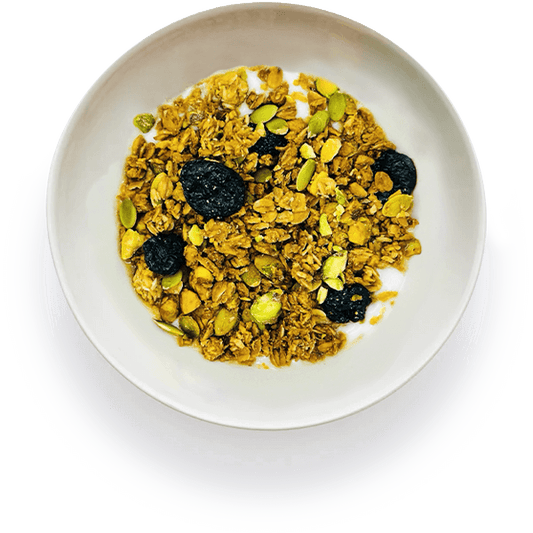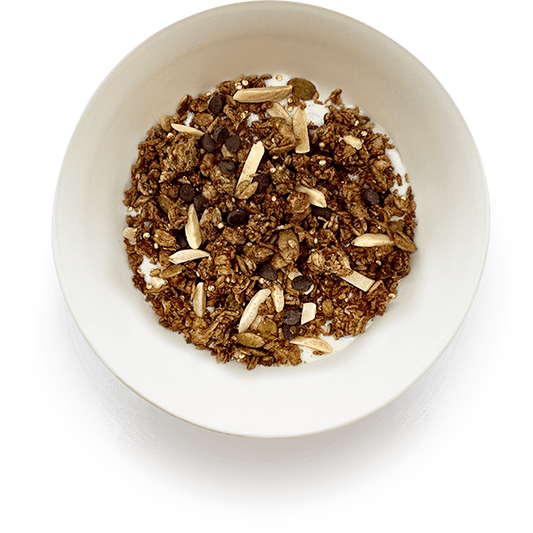The Science Behind Plant-Based Nutrition: Research Insights
By FireRoad
In the ever-evolving landscape of nutrition, plant-based diets have captured the attention of health enthusiasts, athletes, and everyday eaters alike. With increasing awareness about the benefits of consuming a variety of nutrient-dense foods, many are shifting towards plant-based options. But what does the science say? In this article, we'll dive into the research surrounding plant-based nutrition, offering insights into why and how it can enhance overall health and fitness.
Understanding Plant-Based Nutrition
Plant-based nutrition primarily focuses on foods derived from plants, including fruits, vegetables, whole grains, nuts, and seeds. This dietary approach emphasizes minimizing or eliminating animal-based products. One common misconception is that a plant-based diet lacks protein. However, numerous studies have shown that a well-planned plant-based diet can provide adequate protein while being rich in essential nutrients.
The Nutritional Benefits of Going Plant-Based
When exploring the world of plant-based nutrition, it's crucial to identify the abundant nutrients these foods offer:
- Vitamins and Minerals: Plant foods are packed with vitamins (like A, C, and K) and minerals (such as iron and magnesium) that support overall health.
- Fiber: Plant-based products are typically rich in dietary fiber, promoting digestive health and keeping you full longer.
- Antioxidants: Fruits and vegetables contain antioxidants that can help reduce inflammation and combat chronic diseases.
- Healthy Fats: Foods like avocados, nuts, and seeds provide heart-healthy fats essential for proper bodily functions.
How Plant-Based Diets Promote Fitness
For those engaged in fitness, plant-based nutrition can provide adequate energy and recovery benefits. A diet filled with whole plant foods not only sustains energy levels during workouts but also aids in recovery.
Protein Sources in a Plant-Based Diet
Interestingly, various plant foods can fulfill your protein needs without resorting to animal products. Here are some excellent sources:
- Legumes: Beans, lentils, and chickpeas are rich in protein and can be easily incorporated into meals.
- Whole Grains: Quinoa, brown rice, and oats are great for maintaining energy levels and contributing to protein intake.
- Nuts and Seeds: Almonds, chia seeds, and hemp seeds are not only rich in protein but also packed with healthy fats.
- Plant-based Meat Alternatives: Many products simulate the texture and flavor of meat, offering a delicious way to increase protein in meals.
The Flavor Factor: Creating Delicious Plant-Based Dishes
Flavor plays a significant role in meal satisfaction. Switching to a plant-based diet doesn’t mean sacrificing taste. With the right combination of spices, herbs, and cooking techniques, plant-based meals can be just as flavorful as traditional dishes.
Incorporating Flavorful Ingredients
One excellent way to elevate the flavor of your meals is by experimenting with various herbs and spices. Consider adding:
- Herbs: Basil, cilantro, and parsley can enhance the taste of salads, soups, and sauces.
- Spices: Cumin, paprika, and turmeric can add warmth and depth to your dishes.
Additionally, many people miss their favorite comfort foods when transitioning to a plant-based diet. However, it’s easy to adapt traditional recipes. For instance, you can create a delicious plant-based version of pepperoni pizza using cashew cheese, mushrooms, and a variety of spices for that traditional flavor.
The Research: What Studies Reveal
Multiple research studies highlight the health benefits of adopting a plant-based diet. A growing body of evidence suggests that individuals who favor plant-based foods tend to have lower risks for chronic diseases.
Cardiovascular Health
Research indicates that those who consume a plant-based diet have a significantly reduced risk of heart disease. A meta-analysis found that plant-based eaters showed improved cholesterol levels and blood pressure. This correlation suggests that consuming nutrients from whole plant foods can promote a healthier heart and reduce the chances of cardiovascular complications.
Weight Management
Another noteworthy finding is the connection between plant-based diets and weight management. Studies have shown that individuals who follow such diets often experience easier weight control due to higher fiber intake and lower calorie density in plant foods. This means more volume and satisfaction without the high caloric content found in many animal-based products.
Addressing Nutrient Deficiencies
One concern many people have about moving toward a predominantly plant-based diet is the risk of nutrient deficiencies. However, with proper meal planning and knowledge, this can be easily managed.
Key Nutrients to Monitor
When considering a plant-based approach, pay attention to the following:
- Vitamin B12: This vitamin is primarily found in animal products. Many plant-based eaters benefit from fortified foods or supplements.
- Iron: Plant-based sources like lentils and spinach provide non-heme iron, which is less readily absorbed. Consuming vitamin C-rich foods alongside can enhance absorption.
- Omega-3 Fatty Acids: Incorporate flaxseeds, chia seeds, and walnuts to ensure adequate intake of essential fats.
The Environmental Impact of Plant-Based Nutrition
Aside from health, one significant advantage of adopting a plant-based lifestyle is its positive effect on the environment. Research reveals that plant-heavy diets contribute to lower greenhouse gas emissions, reduced water usage, and less land needed for food production.
Making Sustainable Choices
By choosing plant-based foods, individuals can contribute to a more sustainable future. Emphasizing local, seasonal produce minimizes carbon footprints and supports local economies.
Practical Tips for Transitioning to a Plant-Based Diet
Transitioning to a plant-based diet can seem daunting, but with some essential tips, the process can be enjoyable and rewarding:
- Start Slow: Introduce more plant-based meals into your diet gradually. Begin with one or two days a week, then increase as you feel comfortable.
- Explore New Recipes: Experiment with ingredients and cuisines to discover delicious plant-based dishes.
- Plan Your Meals: Meal prep can make it easier to maintain a balanced diet while avoiding last-minute unhealthy choices.
Reimagining Your Plate: Creative Plant-Based Meals
As you embark on your plant-based journey, don't limit yourself to salads. There’s a whole culinary world to explore. Creative substitutions can help you enjoy familiar flavors while reaping the benefits of plant-based nutrition.
Plant-Based Classics
Here are some easy alternatives to traditional favorites:
- Burgers: Try black bean or lentil patties topped with fresh veggies and avocado.
- Pasta Dishes: Use zucchini noodles or whole grain pasta with fresh tomato sauce and nutritional yeast. This creates a cheesy flavor without dairy.
- Stir-Fries: Combine tofu or tempeh with a variety of colorful vegetables, tossed in your favorite sauce for a quick, flavorful meal.
Embarking on Your Plant-Based Journey
Transitioning to a plant-based lifestyle may come with challenges, but the benefits outweigh the obstacles. Whether you are motivated by health, fitness, sustainability, or ethical concerns, diving into this dietary trend opens up a world of flavors and nutrients. From protein-packed meals to delicious adaptations of comfort foods like pepperoni pizza, the possibilities are endless. The science behind plant-based nutrition is clear: it can lead to better health, enhanced fitness, and a more sustainable food system.
As you explore this new way of eating, remember to listen to your body, enjoy the journey, and savor each bite of your delicious, nutrient-rich meals!











